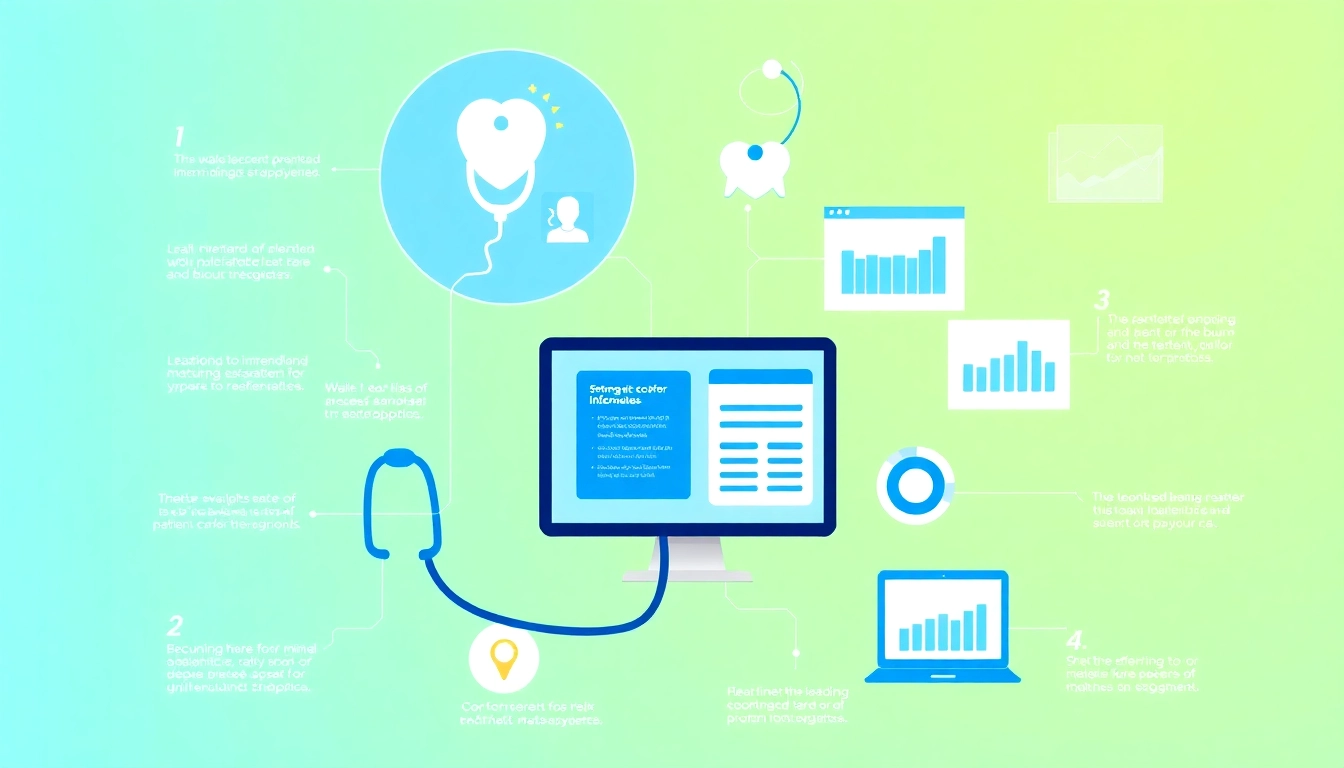Understanding Vitamin Boosters and Their Benefits
In today’s health-conscious world, the pursuit of wellness often leads individuals to seek out solutions that can enhance their vitality and overall wellbeing. One such solution is the use of Vitamin Boosters, which have gained significant attention for their potential benefits in supporting immune health, promoting energy, and contributing to overall nutrition. This article will delve into what vitamin boosters are, their health benefits, common misconceptions surrounding them, and how to effectively integrate them into your lifestyle for optimum health.
What are Vitamin Boosters?
Vitamin boosters are concentrated doses of vitamins and minerals designed to support specific health outcomes. These can be found in various forms, including pills, powders, and liquid formulations. Typically, vitamin boosters deliver nutrients in higher amounts than those found in standard multivitamins, focusing on particular needs such as immune support, energy enhancement, or general health boosts. They are often utilized in conjunction with a balanced diet to achieve enhanced nutritional benefits.
Health Benefits of Vitamin Boosters
The health benefits of vitamin boosters are broad and diverse, depending on the specific vitamins and minerals included in the formulations. Some key benefits include:
- Enhanced Immune Function: Vitamins such as C, D, and Zinc are renowned for their roles in supporting immune response. They can lead to a reduced risk of infections and faster recovery from illness.
- Increased Energy Levels: B vitamins, particularly B12 and B6, are essential for energy metabolism, helping the body convert food into fuel efficiently.
- Improved Mood and Cognitive Function: Certain vitamins like B6, B12, and folic acid play critical roles in brain health and mood regulation, possibly aiding in the prevention of depression and cognitive decline.
- Better Skin Health: Antioxidants such as vitamins E and C can promote skin health and combat the effects of aging by protecting skin from free radical damage.
Common Misconceptions about Vitamin Boosters
Despite their popularity, there are several misconceptions when it comes to vitamin boosters. Some of these include:
- “More is Always Better”: A common myth is that taking high doses of any vitamins or minerals will confer additional health benefits. However, excessive intake can lead to toxicity and adverse effects, particularly with fat-soluble vitamins.
- “Vitamin Boosters Replace a Healthy Diet”: While vitamin boosters can provide supplemental support, they cannot replace the diverse nutrients obtained from whole foods. A balanced diet remains essential for comprehensive health.
- “Everyone Needs Vitamin Boosters”: The necessity of vitamin boosters varies between individuals, depending on dietary intake, lifestyle, health status, and specific deficiencies.
Top Vitamin Boosters for Immune Support
Vitamin C: The Immunity Powerhouse
Vitamin C is often touted as one of the most important supplements for immune support. It enhances the production of white blood cells, which are crucial for fighting infections. Additionally, vitamin C acts as a powerful antioxidant, protecting cells from damage and supporting overall health. Foods rich in vitamin C include citrus fruits, strawberries, kiwi, bell peppers, and green leafy vegetables.
Essential Vitamins for Immune System Health
Several vitamins play integral roles in bolstering immune function:
- Vitamin D: Vital for immune health, vitamin D helps modulate the immune system, reducing the risk of respiratory infections.
- Vitamin E: An antioxidant that supports the body’s ability to fight off infections by supporting cell function.
- Zinc: Not a vitamin but a crucial mineral, zinc is essential for the development and function of immune cells.
- Selenium: This trace mineral acts as a powerful antioxidant and is important for preventing inflammation and boosting immunity.
How to Integrate Vitamin Boosters into Your Diet
Incorporating vitamin boosters into your daily routine can be straightforward. Here are practical steps to do so:
- Consult a Healthcare Professional: Before starting any supplementation, it’s wise to consult with a healthcare provider to assess your needs and avoid potential interactions with other medications.
- Choose High-Quality Products: Look for reputable brands that undergo third-party testing to ensure potency and purity.
- Pair with Meals: Taking vitamin boosters with meals can enhance absorption and reduce gastrointestinal discomfort.
- Stay Consistent: Establish a routine for taking your vitamin boosters to reap the full benefits over time.
Choosing the Right Vitamin Boosters for Your Needs
Factors to Consider When Selecting Vitamin Boosters
Choosing the right vitamin boosters involves evaluating a few key factors:
- Personal Health Goals: Identify what specific benefits you wish to achieve, whether it be increased immunity, energy support, or overall wellness.
- Dietary Preferences and Restrictions: Take into account if you have any dietary restrictions, such as being vegan or allergic to certain foods, that may impact your supplement choices.
- Existing Health Conditions: Consider any pre-existing health conditions and ongoing medications, as some vitamin boosters may interact adversely.
Dosage Guidelines for Effective Vitamin Boosters
Understanding the appropriate dosage is crucial. Here are general guidelines:
- Follow the recommended daily allowance (RDA) for each vitamin and mineral as established by health authorities.
- Starting with lower doses may allow the body to adjust without discomfort before increasing to the full recommended amount.
- Be aware of signs of deficiency or overdose, which can inform adjustments in intake levels.
Timing and Frequency for Best Results
Timing can significantly impact the efficacy of vitamin boosters:
- Split Doses: For fat-soluble vitamins, splitting your doses throughout the day can enhance absorption.
- Morning vs. Night: Some people may experience higher energy levels from certain vitamins like B12 when taken in the morning, while others may benefit from calming effects of magnesium or melatonin at night.
Natural Sources of Vitamin Boosters
Fruits and Vegetables Rich in Vitamins
Whole foods are the best source of vitamins. Incorporating a variety of fruits and vegetables into your diet can provide the essential nutrients that support health. For instance:
- Citrus fruits are abundant in vitamin C.
- Leafy greens like spinach and kale provide a wealth of vitamins A, C, E, and K.
- Berries are packed with antioxidants, while bananas offer valuable potassium and B vitamins.
Whole Foods vs. Supplements: What’s Best?
Whole foods contain a complex array of nutrients that synergistically work together, which is often lost in supplementation. When feasible, aim for a diet rich in the following:
- Whole Grains: Such as oats, brown rice, and quinoa for B vitamins and minerals.
- Lean Proteins: Including fish, poultry, and legumes that provide amino acids for overall health.
- Nuts and Seeds: Excellent for healthy fats while also being rich in vitamin E, magnesium, and selenium.
Seasonal Vitamin Boosters and How to Use Them
Seasonal foods can be great sources of specific vitamins during their peak. For example:
- During winter, root vegetables like carrots and sweet potatoes provide valuable nutrients while being comforting during colder months.
- Summer brings an abundance of berries and stone fruits, rich in antioxidants.
- In the fall, pumpkins are not only nutritious but can also be used in soups, smoothies, and baked goods.
The Future of Vitamin Boosters in Health and Wellness
Emerging Trends in Vitamin Booster Research
The field of nutrition science is ever-evolving, with ongoing research highlighting the potential personalized benefits of vitamin boosters. Individual nutrient needs based on genetics, lifestyle, and specific health conditions are becoming a focal point, influencing how vitamin boosters are tailored for maximum effectiveness.
Innovations in Vitamin Supplementation
Innovative delivery systems are being explored, such as liposomal formulations that enhance absorption of vitamins, especially those that are notoriously difficult for the body to assimilate effectively. Additionally, advancements in bioavailability may lead to more efficient vitamin boosters that work for individual metabolic profiles.
Personalized Nutrition and Vitamin Boosters
Personalized nutrition represents the cutting edge in health and wellness, suggesting that vitamin boosters could eventually be formulated based on individual health assessments. This approach could lead to highly tailored supplementation that meets specific individual needs rather than a one-size-fits-all philosophy.



